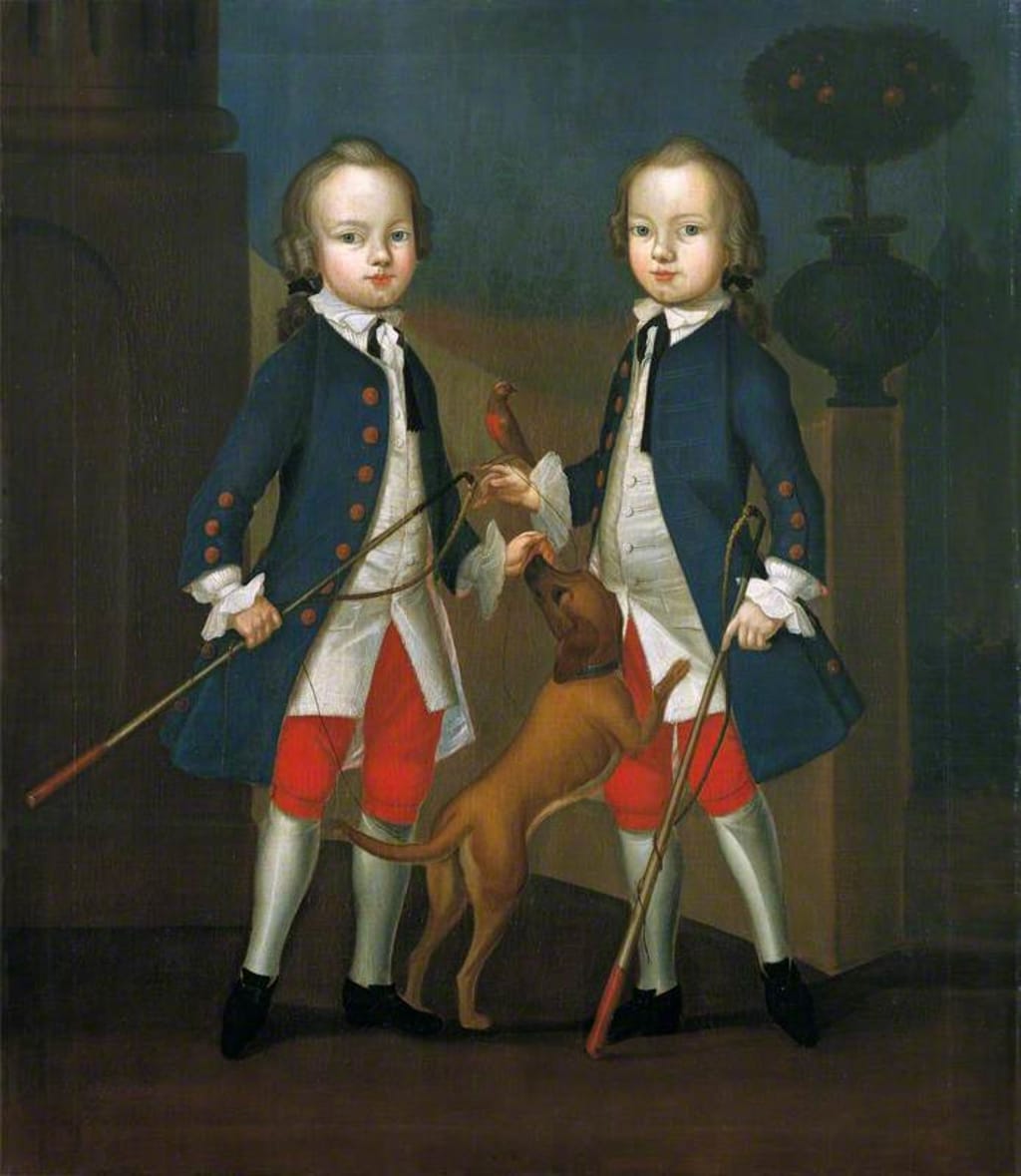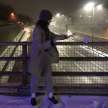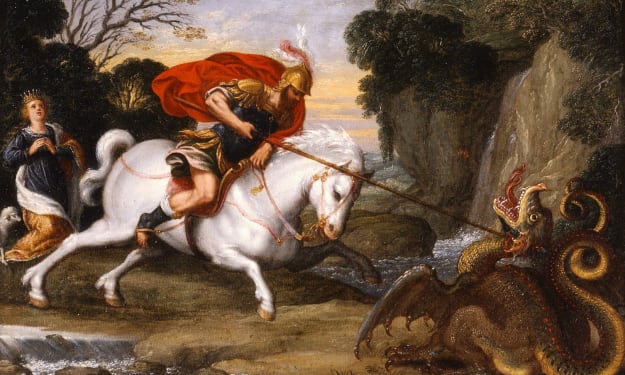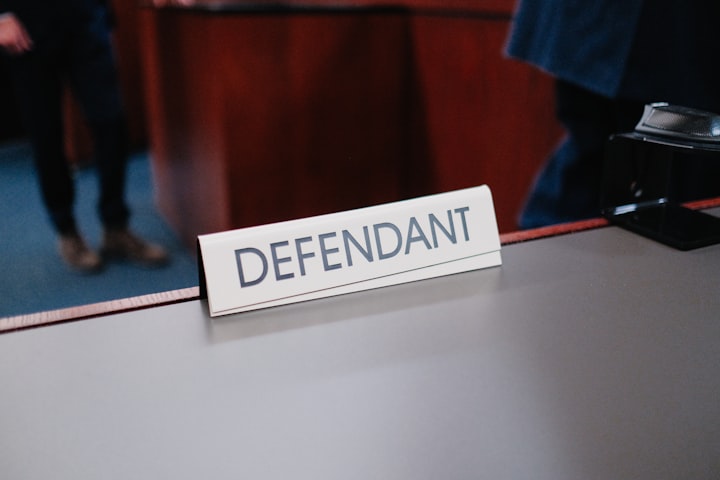Fraternity
'Brotherhood'

Me and my brother look at each other as we drown kittens in the water. We look the same. We have the same eyes and the same nose. We can hear each other’s thoughts.
I remember first listening to the little pulses of his mind when we were in the womb together, and everything was red and fleshy and warm. Not words, of course, because we didn’t know, but certainly feelings, bubbles of worry, a looming sense of dread.
It was nice and we didn’t have to breathe. We just were. We slept at the same time in the fluid, and it kept us alive and we grew.
Once we’d learnt how to speak my brother told me he didn’t remember any of this but that’s ok because I don’t remember everything; he remembers what I forget, and I remember what he forgets.
Of the two of us my brother was born first. That was the only time I have ever been alone. I could hear him screaming from the outside as inside pulsated and heaved and I jostled around with it, eventually exiting, leaving.
When I was born the sinewy cord that had kept me alive was wrapped around my throat. I wanted to scream, to join in with my brother, but I couldn’t. Everything was so cold where it had been warm before and my body hurt. Before, except for my brother, I hadn’t felt a thing.
Someone who I would later learn to be Mother could have left the cord around my neck and all I would have ever known, apart from what I remember from inside, was that pain. She would go on to remind me of this often.
She didn’t leave it though. Dutifully she untethered me and saved me and fed me. She let me and my brother stay together, with her, in the little farmhouse by the lake.
This is where we are now, where we’ve always been. Our animals get sick a lot, our crops struggle to grow in the waterlogged earth. The animals we wish would have babies never do, and the ones we don’t, like our cats, always seem to be birthing tiny, wet, slippery things that me and my brother have to get rid of.
Mother calls it putting back.
“Go put these back in the water,” is what she says, after she’s cursed upon discovering another heap of feeble bodies writhing over each other in a corner of a room, or in a drawer, or in a hole between the skirting board and the crumbling walls of our farmhouse.
I remember all the liquid from when I was inside her with my brother, the liquid that left shortly before he did and the walls caved in and squeezed me out too.
-/-
One day we were putting some mice back; minuscule things, soft and pink, so small you can do more than one at a time and I could hear my brother thinking something that he hadn’t thought before.
They don’t like it. They don’t like it. They don’t like it.
I asked him what he meant, and that’s when he told me what we were actually doing is called drowning. I asked him how he found that out and he said Mother had told him. I asked him why she didn’t tell me that and he said he didn’t know. He said to ask her but he knew I wouldn’t.
After that, any time we had to put something back, had to drown something, it would always be the same.
They don’t like it. They don’t like it. They don’t like it.
And what before had seemed like a game to me, suppressing the wriggling and the biting, suddenly made me feel weird in my stomach. It wasn’t just like exercise, or something even more natural like eating, the little things that moved around in my hands as I held them beneath the water, one after the other, were trying to get out from under it. I was Mother, keeping the cord there, around their necks in the gloom as the lake lapped silkily at the shore. My brother was her too, doing the same.
For a while after this me and my brother would try and find the babies of things before Mother did, to keep them secret and maybe alive. We’d cover them in stray pieces of burlap, or stuff them into empty jars swiped from the kitchen and put the lid on tightly so that any warbling or mewling or scratching wouldn’t possibly elope to Mother’s omniscient ears.
It never worked, though. She always found them. She had a knack for scratching around the darkest recesses of our house, all the nooks and crannies. I am sure if she could have turned her talent for hunting out babies into money somehow, those dull, circular pieces of metal that so dictated our lives, we may have lived very differently.
Mother once pried up a floorboard with her bare nails, clawing and tearing at the wood that me and my brother had used a crowbar to get loose. When she brandished the jar that lay beneath it some of her fingertips were missing bits of nail; bright pink and sore-looking, blood seeping through from underneath the surface of her skin.
The contents of the jar were all dead. Five little puppies, weizened.
“You are cruel boys,” Mother had said, shoving the jar and her horrid, bloodied fingers into our faces, “cruel, cruel boys. You’re both going to hell. The way there is paved with all manner of things just like this.
“Do you understand how these babies died? In this jar? They suffocated or starved. They had pain in their little, tiny bellies that consumed them. They would have been screaming to each other, confused, lonely, screaming and screaming until eventually one voice dropped off, and then another, and then another, until there was just one left.
“This is why it is much kinder to put things back into the water you stupid, idiot boys. There’s no screaming in the water. Just cold, and then nothing.”
I remained silent and took my fable squarely.
My brother did not, “why can’t we just let everything live? Why do we have to drown them? They don’t want to die.”
For his insolence, she slapped me.
Sorry.
That’s ok. You are my brother. I can take anything meant for you. Good or bad.
“With what food you stupid boy?” replied Mother, as always oblivious to our thoughts, “we barely have enough for one another, and the important animals, and you want to see us sparing more than we already do so?”
“We could sell them once they are big,” he said back defiantly. She slapped me again.
I am truly sorry.
That’s ok. You are my brother.
“The devil is getting into your head, boy. Flagrance and waste. I won’t let you starve this family. This house is not a womb,” Mother said.
For the week following, she didn’t feed us. She said that it was a taste of what life would be like if we tried to keep everything that spawned amongst the roof struts and foundations alive alongside us. It was painful and it worked. My brother and I went back to drowning things together, side by side, by the edge of the lake in the dark.
Now, however, where I still plunged my hands into the inky wetness of the lake, and held the creatures underneath, one by one, until they died, Mother relented on my brother’s sensibilities and lent him a burlap bag. He would fill the bag up with squirming sacks of skin and bone and breath, place some rocks in there too, tie it closed with a rope and then cast it out into the lake, as far away from himself as he could manage, so far into the sharp, black distance in-fact that it was often hard to make out where the sack had landed.
The ripples made by the bag would cause the water of the lake to lap higher up my wrists than usual. It was easy to notice because I was always staring so intently at the gap between them, thinking about how I could feel the dying happening just beneath the surface, but never see it.
An unspoken amount of time would pass, and then my brother would haul the bag back in using the other end of the rope.
He’d open it up and tip the little, dead bodies back into the water, so he could use the bag again next time.
There would be so many thoughts of his flying around. A cacophony, maddening, I could barely find myself within it sometimes.
I am the devil. I am the devil. I am the devil. I am the devil. I am the devil.
You are not the devil. You are my brother.
I am the devil. I am the devil. I am the devil.
Puppies were the worst for my brother.
Once, he cast the bag, hauled it in and started crying because somehow one of the dog babies inside it had survived. Apart from when we were both smaller, my brother never cried. Mother’s slaps used to smart so much that I cried often. Involuntarily, but often.
The juxtaposition between us then was so stark, and the moonlight reflecting off the surface of the lake made him look so twisted and grim and ill that I was moved upright from my kneeling position at the edge of the water. The thing I had been drowning was nearly done anyway, nearly dead.
I walked over to him and put my hand on his shoulder. Then I took the puppy from the bag, wordlessly, and put it back myself.
You are my brother. I was thinking as I did it. You are my brother and I can take anything meant for you. Good or bad.
He asked me to put everything back from then. His pink things and mine. It was a very solemn and quiet moment. We were huddled together in our sleeping place on some hay, by the ever-trembling goat which was giving ever-worsening milk. I acquiesced, because he was my brother.
I could hear him thinking as we went to sleep that night.
Thank you. Thank you. Thank you.
-/-
My brother remembers there was a very harsh winter following the summer of our arrangement. I don’t recall it as well. Vaguely there is snow in my mind, when I think back to it, and perhaps a frostbitten toe, but it’s not important that I remember all the fine details of this particular winter, my brother does, and that’s enough.
During that winter, he tells me, we had barely any food at all.
If the babies Mother found then weren’t already frozen solid, my brother tells me, he thinks we would have eaten them.
The lake was frozen over, so we couldn’t have put anything back anyway. Even if we wanted to.
The reason we know it was frozen despite the fact we weren’t drowning anything is because Mother sent us both there one evening, my brother tells me. The kind of evening where the sky is a deep, dark blue and the silhouettes of all the trees are pitch black, spiky and foreboding, threatening entanglement, rippages, poisonous berries.
My brother’s hand was cold as I held it and he was thinking very loudly as usual.
Sorry. Sorry. Sorry.
“Whatever are you sorry for?” I asked him eventually. My words come out with little puffs, symbolising the hotness of my insides, their alleged virility despite how cold I am on the surface.
“I’m sorry for Mother,” said my brother.
“I’m sorry for Mother too, but we have each other, do we not?”
He paused then, “and I’m sorry that the lake is frozen.”
The next bit I don’t remember so well, but my brother remembers. He tells me that he snatched his hand from my icy grip and raised that plus his other one to my unsuspecting neck. He tells me how I didn’t struggle, not really, just that there was a bit of physical reshuffling as we both fell to the floor, and he straddled me, and re-clasped my throat so tightly that the blood vessels in my eyes burst.
He tells me he was crying, and how Mother had convinced him that one of us had to be put back because the winter was so harsh, and that it was only right, only fair, that it was the one of us whose watery destiny had already been interfered with once, when she loosened her cord from around me.
I love my brother dearly. I think this is why I didn’t struggle, and I let him do what he had to do. It’s also why when he tells me the next bit I don’t believe him.
He says that he left me by the edge of the lake and started walking back to our farmhouse because he thought it was over, and that I had no life in me. But I did. He says that I got up, breathed in the cold, snowy air, then ran after him like a demon.
He says that he could hear me thinking before he saw me.
It’s your turn to take it. It’s your turn to take it. It’s your turn to take it.
Then like the ghoul I was, the whites of my eyes all burst and red, I grabbed him by the back of his shirt and started dragging him towards the lake. Unlike me, allegedly, my brother struggled. My brother cried. My brother pleaded.
But, to me, it was just like all those threshing, hairless bodies I’d had clasped between my hands. Meaningless, overcomable.
When we reached the edge of the lake I grabbed my brother’s desperate mass and slammed his head on the thick ice covering its surface. A chewy, cracking sound rang out, a bit like when you catch your own joints rubbing against each other inside your own body. The ice remained complete so I slammed his head again, and again and again, and the moonlight bathing both of us made the blood from his head seem somehow orange.
My brother had stopped struggling at this point. When, finally, the ice gave way, and the blackness therein beckoned for his head, he succumbed to it dutifully, like a good brother. He was heavy, but I was able to put him back completely, through that hole in the ice. It reached a certain point and he went quite naturally, his legs and feet disappearing through that hole with no interference from me, like he was propelling himself.
This is just what he tells me though. I love him but I don’t believe him.
After all, how can it be when I can see my brother right at this moment? We have the same eyes and the same nose. We’re both drowning kittens in the lake. We’re looking at each other. We can hear each other’s thoughts.
And, when I smile, feeling the kittens struggling fruitlessly against my hands one after the other, he smiles at the same time too.
About the Creator
Amelia Lane
Trying my best.






Comments
There are no comments for this story
Be the first to respond and start the conversation.